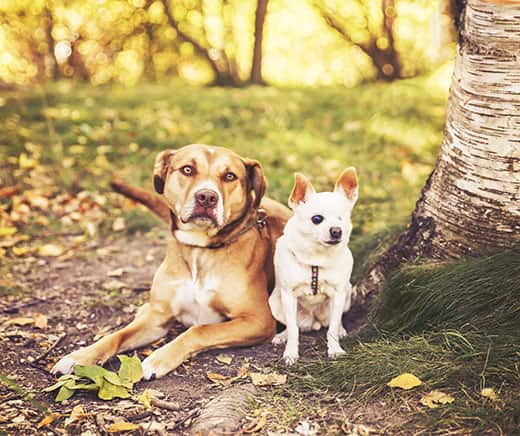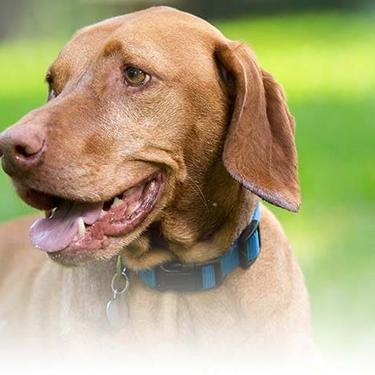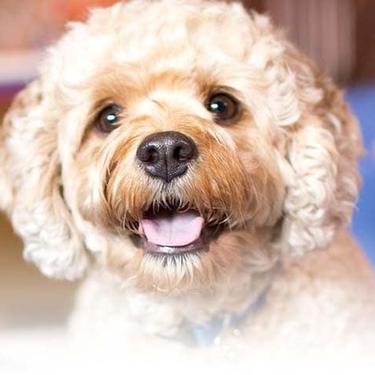
-
Find the right food for your pet
Take this quiz to see which food may be the best for your furry friend.
Find the right food for your pet
Take this quiz to see which food may be the best for your furry friend.
Featured products
 Adult 7+ Perfect Digestion Chicken, Whole Oats & Brown Rice Recipe Dog Food
Adult 7+ Perfect Digestion Chicken, Whole Oats & Brown Rice Recipe Dog FoodScience Diet's breakthrough nutrition supports ultimate digestive well-being & healthy microbiome for dogs age 7+
Shop Now Small & Mini Savory Stew with Chicken & Vegetables Dog Food
Small & Mini Savory Stew with Chicken & Vegetables Dog FoodA delicious complement to the nutrition of Science Diet Small & Mini 7+ dog food
Shop Now Adult Healthy Cuisine Roasted Chicken, Carrots & Spinach Stew Dog Food
Adult Healthy Cuisine Roasted Chicken, Carrots & Spinach Stew Dog FoodDelicious roasted chicken paired with tender vegetables in a succulent stew
Shop NowFeatured products
 Adult 7+ Senior Vitality Chicken & Vegetable Stew Cat Food
Adult 7+ Senior Vitality Chicken & Vegetable Stew Cat FoodImproves Everyday Ability to Get Up & Go
Shop Now Adult 7+ Tender Tuna Dinner Cat Food
Adult 7+ Tender Tuna Dinner Cat FoodWith delicious chunks in a decadent gravy
Shop Now Adult Savory Entrée Can Variety Pack Cat Food
Adult Savory Entrée Can Variety Pack Cat FoodPrecisely balanced nutrition with the delicious taste of savory minced chicken to help fuel the energy needs of cats during the prime of their life
Shop Now -
Dog
- Dog Tips & Articles
-
Health Category
- Weight
- Food & Environmental Sensitivities
- Urinary
- Digestive
- Joint
- Kidney
-
Life Stage
- Puppy Nutrition
- Adult Nutrition
- Senior Nutrition
Cat
- Cat Tips & Articles
-
Health Category
- Weight
- Skin & Food Sensitivities
- Urinary
- Digestive
- Kidney
-
Life Stage
- Kitten Nutrition
- Adult Nutrition
Featured articles
 Do Dogs and Cats have Belly Buttons?
Do Dogs and Cats have Belly Buttons?Learn whether cats & dogs have belly buttons like humans, what the function is, and if there are any health concerns associated with it.
Read More Why Are Dogs and Cats So Cute?
Why Are Dogs and Cats So Cute?If waggy puppy dog tails and furry kitten yawns make you swoon, you're not alone. Why are cats so cute? And, dogs too! Let's find out!
Read More Does My Pet Hate Me?
Does My Pet Hate Me?Learn tips for bonding with your pet if you've ever thought, 'My dog doesn't like me, or 'Why do I have a standoffish cat?'
Read More -

Congratulations! It's time to bring home your new puppy. Your first steps include puppy proofing your home, finding a veterinarian, and buying healthy puppy food, but you're probably most excited about puppy socialization. You love spending time out of the house, so socializing your puppy to behave while out and about is very important to you.
The Animal Humane Society states, "The greatest window of learning in a dog's life starts ... around 3 weeks of age and closes between 16-20 weeks." Often, puppies are adopted out to their forever homes between 7 and 12 weeks of age. When your puppy is exposed to humans and other animals before he arrives at his forever home, he's primed to socialize.

Puppy Socialization in Your Home
Socialization starts in the home. When you first adopt your dog, expect an adjustment period. Your puppy may be nervous being alone if he was used to spending time with other animals and humans. Clear your schedule to spend time with your new dog in the home, but encourage him to play on his own, too. Part of socialization training is fostering independence so your dog doesn't feel anxious when you aren't around.
If you have other pets, be careful to introduce your new dog to them in a safe environment. Never force a relationship between animals. Allow them to sniff each other out — literally and figuratively. Limit their interactions at first, even if they seem to get along well from the get go, and lengthen them over time. This will help your new pup know that he can escape when he is feeling apprehensive, as well as teach him that you're in charge. It also helps ease any stress your other pets might be experiencing with a new puppy in the house.
There are many items in your home that your dog has never experienced before. By facing fears in the home, you're better preparing your dog to socialize out of the home. If your dog appears apprehensive or scared by something, such as the vacuum, turn it off and allow your pup to explore the vacuum while you're not using it. Then, while he's in sight, but not near it, turn it on so your dog can see its function. By addressing fears in a safe manner, your dog won't harbor anxiety about new experiences.
Once your puppy feels comfortable in your home and with your family and pets, invite over friends, extended family, and even their pets! A socialized dog shouldn't be territorial, so invite new faces over at an early age. Only allow behaviors you'd expect from a well-mannered dog when visitors arrive. Don't allow your pet to jump on guests or bark at cars in the driveway. Helping "train" your friends or family to not invite bad habits is also a good idea. For instance, do not allow them to feed him human food so that he won't expect it growing up.


Tasty Tips
Socializing Your Puppy in the Community
It's very important to bring your young puppy out of the home and into new environments. You don't want your dog to be fearful in crowds or aggressive when approached by humans or other animals. By introducing him to both quiet and busy locations, he'll feel at ease in different places as an adult.
Consider the age of humans your dog has access to. If the guests in your home are all adults, it's important to introduce your new puppy to children in public, even if indirectly. Walk your dog in the park while children are playing so he can witness their energy and enthusiasm. Just remember to keep a safe distance until your puppy has successfully completed a dog training program. Group obedience classes are also a great place to help your dog interact with other people and dogs in a controlled environment.
When your dog is ready to meet new people, teach him the appropriate way to greet new people. First, see that your dog has enough space to move around. You don't want him to feel confined when meeting strangers. Next, make sure he's calm and sits before allowing a person to greet him. Similar to training your dog, it's also appropriate to "teach" strangers the appropriate way to greet your dog. Don't allow anyone to rush to your dog, which may make him feel threatened, and keep strangers away from his face. Bring treats with you on walks so strangers can share them with your dog when he's calm. Rewarding him when he behaves well will help reinforce good behavior.
Your dog will take to socialization quickly if you always foster a calm, safe environment. Remind your friends, family, and strangers to never force an interaction on your dog, and he'll eventually feel comfortable and happy to make new friends.


Erin Ollila believes in the power of words and how a message can inform—and even transform—its intended audience. Her writing can be found all over the internet and in print, and includes interviews, ghostwriting, blog posts, and creative nonfiction. Erin is a geek for SEO and all things social media. She graduated from Fairfield University with an M.F.A. in Creative Writing. Reach out to her on Twitter @ReinventingErin or learn more about her at http://erinollila.com.
Related products

Delicious roasted chicken paired with tender vegetables in a succulent stew

A delicious complement to the nutrition of Science Diet Small & Mini 7+ dog food

Delicious braised beef paired with tender vegetables in a succulent stew

Science Diet's breakthrough nutrition supports ultimate digestive well-being & healthy microbiome for dogs age 7+
Related articles

Hill's Science Diet Small & Toy Breed dog foods are designed to meet the nutritional needs for your small dog at every life stage. Learn more here.

Your dog's coat and skin are a big part of your dog's overall health. Ensure you keep your dog's coat healthy, by following these simple tips.

Large and giant breed puppies have different nutritional needs than other dogs. Learn how to provide the special care they need to grow up big and strong.

Learn about choosing the right food for your mature or older dog, ensuring he receives the correct balance of nutrition.

Put your dog on a diet without them knowing
Our low calorie formula helps you control your dog's weight. It's packed with high-quality protein for building lean muscles, and made with purposeful ingredients for a flavorful, nutritious meal. Clinically proven antioxidants, Vitamin C+E, help promote a healthy immune system.
Put your dog on a diet without them knowing
Our low calorie formula helps you control your dog's weight. It's packed with high-quality protein for building lean muscles, and made with purposeful ingredients for a flavorful, nutritious meal. Clinically proven antioxidants, Vitamin C+E, help promote a healthy immune system.

